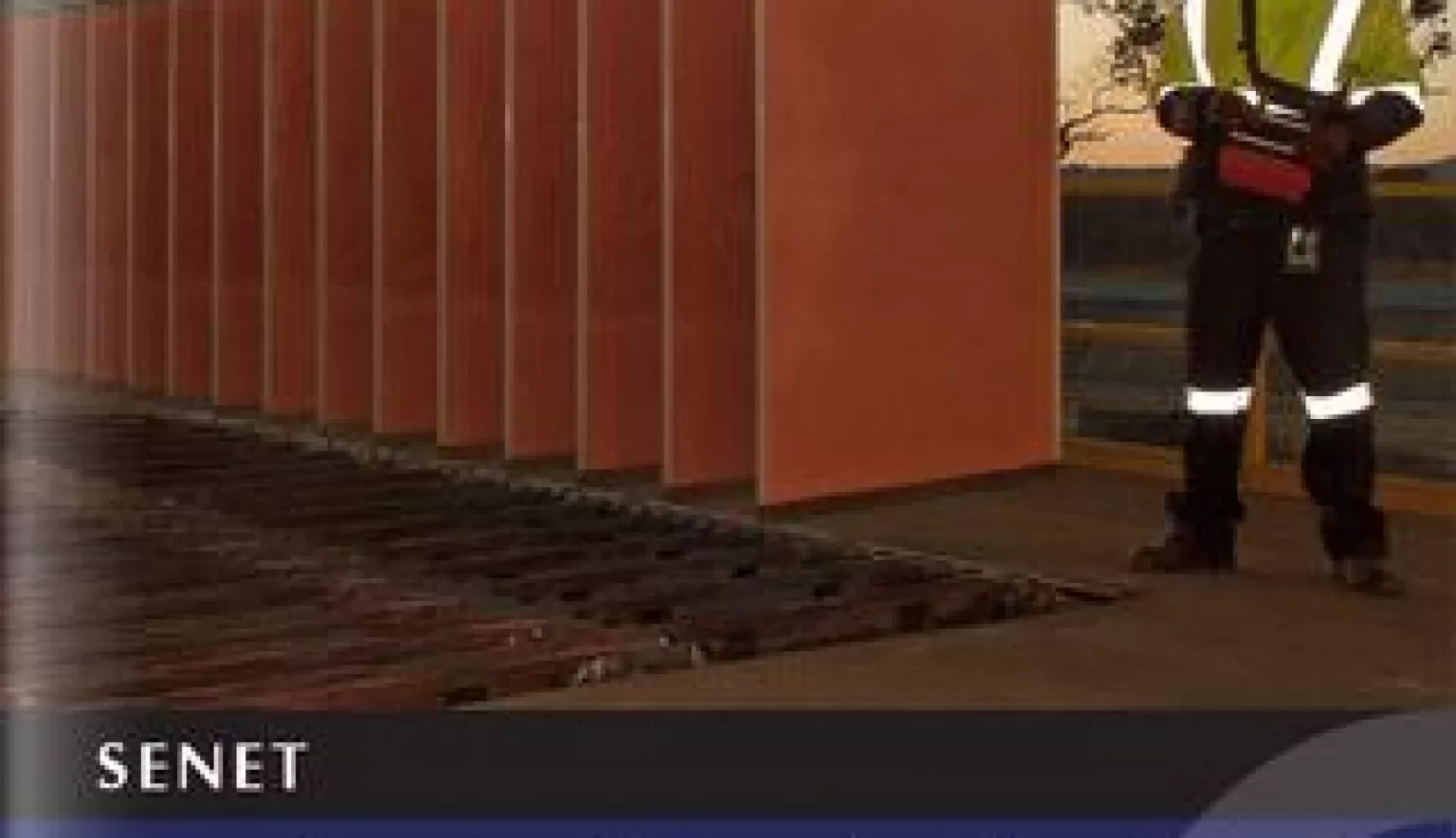Senet has built a significant reputation across numerous mining commodities over its 25 year life and continues to diversify, expand and evolve with the future in mind.
25 YEARS OF GOLD AND COPPER PROCESSING
SENET is celebrating its 25th year of operations while looking towards the next 25 as it gears up for future industry booms in the mining sector in Africa.
Despite its core copper and gold markets being engulfed in a general slowdown of late, the indigenously South African project management and engineering organisation is taking steps to ensure that its internal processes are being optimised in order to strike while the iron is hot once the industry picks up speed again.
Since its inception in 1990 as a conveying and bulk materials handling business in the mining sector, the company has grown and diversified, building a formidable reputation as a significant player across the African continent by providing an all-encompassing process plant design solutions range.
This range comprises all levels of project feasibility studies, process plant design, project management, procurement and construction services, heap leach stacking using state-of-the-art equipment, mineral beneficiation, bulk materials handling and conveying; all within the mining domain.
“Our services cover everything from conceptual desktop and feasibility studies of mineral processing plants, to project design, project execution and construction up to the point of commissioning,” explains SENET’s new Business Development Director, Darren Naylor, who also emphasises what a great achievement it is to have been successful for so long in such a fluctuating and challenging industry.
“To reach our 25th year is a momentous milestone within the African space. We are part of an elite group of truly South African EPCM (engineering, procurement and construction management) companies that are still in existence,” he adds. “Most of the others have been bought out by large international players, therefore it’s a testament to SENET that it has maintained its unique identity and continues to prosper.”
A BEDROCK OF EXPERTISE
With the original founders of SENET still involved in the business, this provides a flexible, entrepreneurial basis from which all of its expansion and diversification has occurred over its history.
Starting life as a predominantly materials handling and heap leach business, the company used this robust approach to form a bedrock of expertise and to build a reputation within the industry, particularly in Africa. These features remain integral to the service provided by SENET, which is now under the guidance and direction of a new, dynamic and like-minded management team.
The SENET that exists today is the result of development that started with its first major process plant contract awarded more than a decade ago, as Naylor notes: “Initially, we expanded our services to meet our clients’ increasing needs, and then in the early 2000s we built our first large gold process plant, which kick-started our real growth.
“From that point onwards we grew exponentially with a track record in full process plant design with strong execution in construction and completion of projects.”
While not necessarily known as a construction company itself, this aspect has been integral in providing the complete service that SENET now prides itself on. This, combined with the final, tailor-made solution that is developed for each client, has led to the company working with numerous market-leading Groups on large-scale mining sites.
TRACK RECORD
By meeting and exceeding customer demands and expectations and producing flagship projects over the past 25 years, SENET has created a successful business model, starting with its first groundbreaking heap leach project in Ghana in 1994, and subsequently including work with multinational giants like Glencore for whom SENET carried out work at their Mutanda Mine in the DRC.
“Track record counts for everything,” Naylor states. “Until we completed our first process plant, we were considered a conveying company and, at best, a heap leach company, but since then we have received a significant amount of repeat business from various clients going through three or four phases of their development over the years.
“This is testament not only to doing something well, but also to developing loyalty in an environment where loyalty is diminishing.”
Fostering such close-knit relationships with clients has further aided SENET’s own growth on a geographical level too, moving into new regions of Africa, and even overseas, as customers look to the company for a consistent, standardised service across their own international operations.
“Our target copper and gold markets are predominantly in Africa but we have also executed projects in Kazakhstan, South America and the UAE, amongst many others,” Naylor adds. “We do have good exposure internationally, but we still focus primarily on Africa because when it comes to the core skills of the business, we are very good at working in remote areas and have built a reputation for our work in that geographical area.
“We understand Africa well and some remote regional parts of Africa extremely well. You can only attain that experience through working somewhere over a number of years so it’s crucial we continue to work in areas that we are comfortable with, for our own benefit and that of our clients.”
IMPROVING EFFICIENCIES
While the company’s present growth is somewhat dictated by the current industry situation, SENET is still finding unique selling points to ensure that it remains sustainable and prosperous in the build-up to the next industry boom.
SENET’s unique selling points include, amongst others, a technical and economic advantage in its milling in raffinate work, for which the organisation has become a world leader. In addition, its heap leach and conveying expertise continues to be developed and enhanced.
Naylor explains: “Commodity demand is at an all-time low which doesn’t translate well into many projects getting off the ground, leading to a lot of competition in the African space.
“However, SENET benefits from being a medium-sized company of around 350 people, by being able to offer a more personal, tailor-made and project-specific approach to our clients.
“This, combined with our track record, experience and low turnover of experienced employees, contributes largely to our success and client appeal.”
Adherence to pressing industry trends and, in particular, environmental concerns further ensures that SENET’s offering is one of the most attractive to clients across the sector in Africa, as everything is put in place for future, enhanced activity across the region.
“The industry is in a challenging position at the moment,” Naylor concludes. “The short-term calls for a period of consolidation, as well as the improvement of efficiencies and internal skills within the organisation.
“The industry will be challenging for the next few years and although we may be growing during this period, we do so cautiously with a focus on building capacity, as we gear ourselves for the next industry boom.”


































